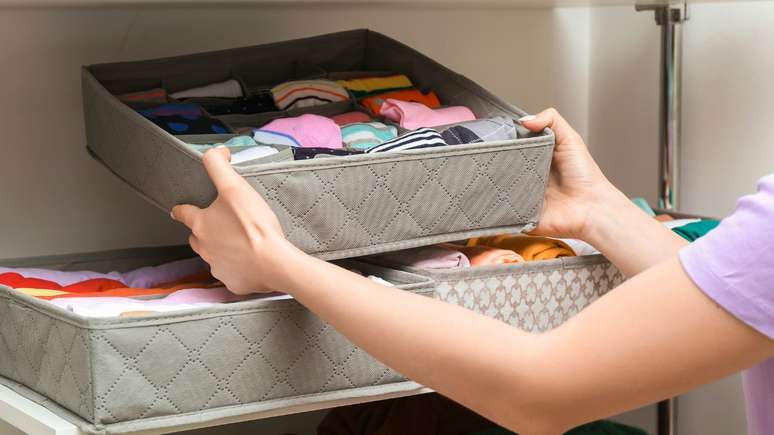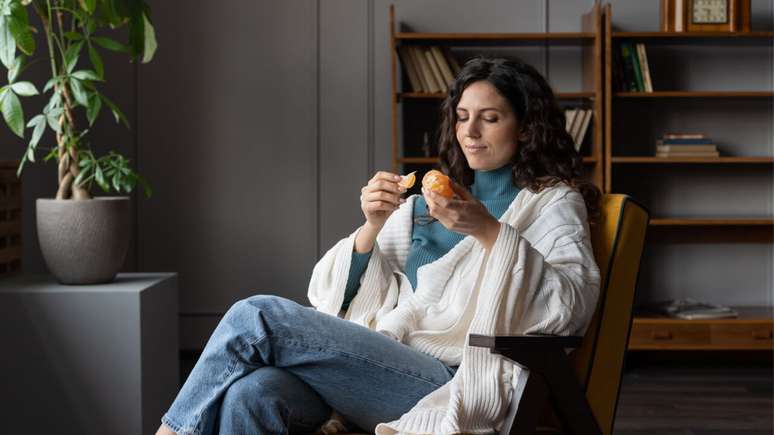The way someone organizes their space can reveal a lot about their psychological state, their internal challenges, and even their coping mechanisms when faced with stressful or anxious situations.
For many people, keeping their home organized goes beyond a simple matter of aesthetic preference or practicality. For others, this need is deeply tied to personality and emotional well-being. The way someone organizes their space can reveal a lot about their psychological state, their internal challenges, and even their coping mechanisms when faced with stressful or anxious situations.
What does it mean?
Keeping your home tidy may reflect a deep desire for control. Often the orderly environment becomes a way to create emotional stability, especially in times of uncertainty. To understand better, see the most common profiles:
- The controller: People with this trait often seek meticulous order in their home, as this gives them a sense of control over their lives. Organizing your space helps reduce feelings of loss of control when the outside world is confusing or unpredictable.
- The anxious: Those with high levels of anxiety may find temporary relief in organizing. Decluttering offers an immediate feeling of calm, reducing mental restlessness and providing a break in the midst of emotional chaos.
- The pragmatist: For some people, cleaning the house is simply a way to be efficient and productive. They don’t see organization as an emotional need, but rather as a practice that simplifies their routine and brings a sense of accomplishment.
How personality influences the need for organization
The search for an organized environment is not only a practical action, but also a reflection of the inner state of each person. Psychologist Danielle Roeske explains that the internal and external world are interconnected and, often, changing physical space can have a direct impact on emotional state. Below are some behavioral profiles:
- For more balanced people, keeping your space tidy can be a way to keep your mind calm and your emotional environment stable. Organization brings a feeling of lightness and mental clarity.
- In cases where there is an internal feeling of chaos, the disorganization of the environment can reflect it. Physical clutter is often associated with an overloaded mind, making it difficult to find inner peace.
- Some see organization as an extension of their perfectionism. For these people, the house must be tidy down to the smallest detail, which can be both a control mechanism and a way to avoid external judgment or criticism.
Perfectionism: when order becomes an obsession
While many feel comfortable keeping their home tidy, the relentless pursuit of perfection may indicate more problematic behavior. Perfectionism, which involves very high and often unattainable standards, can lead to high levels of frustration and anxiety.
- High standards: For the perfectionist, organization goes far beyond simple tidying up. Every object must be in its exact place, and any failure to tidy up can cause great emotional distress.
- The search for approval: Perfectionism is often linked to the desire for external approval. An organized home is seen as a way to demonstrate competence and control, often to avoid criticism or negative evaluations.
- Stress and anxiety: When the pursuit of perfection becomes excessive, organization ceases to be a practical task and becomes a constant source of stress, generating frustration for not reaching established standards.
Source: Terra
Ben Stock is a lifestyle journalist and author at Gossipify. He writes about topics such as health, wellness, travel, food and home decor. He provides practical advice and inspiration to improve well-being, keeps readers up to date with latest lifestyle news and trends, known for his engaging writing style, in-depth analysis and unique perspectives.








